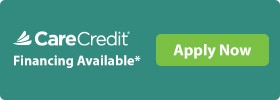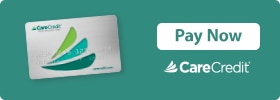High Blood Pressure (Hypertension, HTN)
Hypertension (HTN) is blood pressure that is considered higher than normal. Blood pressure is the measure of the pressure in the arteries, the blood vessels that carry blood from the heart to all of the cells and tissues of the body. When narrowing or constriction of the blood vessels occurs, it causes an increase in the pressure. The blood pressure is considered high if the systolic (top) pressure is 140 or above, or if the diastolic (bottom) pressure is 90 or above. High blood pressure increases the risk of coronary artery disease and stroke. It can also cause damage to the kidneys and other complications. Blood pressure increases temporarily with exercise and with stress or excitement. In hypertension, it is elevated even at rest. Since emotions and other variables can affect your blood pressure, it should be checked on several different occasions before it is determined to be hypertension. For most people, the cause of HTN is not known. In other cases it may be associated with diabetes, disorders of the kidneys, hyperthyroidism, or adrenal tumors. Risk increases in individuals with a family history of HTN, heart attack, stroke, or kidney disease; with the use of birth control pills, steroids, and excessive use of stimulants (caffeine, amphetamines) or certain appetite suppressants; with obesity, a sedentary lifestyle, diet high in salt and saturated fats, age, smoking, excessive alcohol intake, and stress. Hardening of the arteries or plaque build-up often precedes HTN.
Symptoms may include:
May not be noticed even though damage is being done to the body. HTN is called the "silent killer" because symptoms often do not appear until the late stages of the disease.
If your blood pressure is extremely high, it can cause headache, shortness of breath, drowsiness or confusion; chest pain; numbness or tingling in the hands and feet; and a bloody cough. Seek immediate medical assistance if these symptoms occur!
What your doctor can do:
Diagnose the disease by asking about your symptoms, doing a physical exam, laboratory blood tests, electrocardiogram (measures the electrical activity of the heart; also called ECG), angiography (study of arteries and veins) and other X-rays.
Recommend and assist with lifestyle changes to help reduce and control blood pressure and monitor it routinely.
Prescribe blood pressure medications (antihypertensives), if needed. There are many different medications that may be used. You will need to work closely with your doctor to find the combination that is right for you.
What you can do:
Lifestyle changes alone may control high blood pressure for some people and are the first steps for prevention and treatment:
Recommended lifestyle changes include a regular exercise program; a balanced, low-fat diet; weight loss; decreased alcohol intake; stress reduction; and smoking cessation
Take blood pressure medications as prescribed, even when your blood pressure is normal. (It is normal because you are taking the medicine). Contact your doctor if you are having side effects. DO NOT stop taking the medication without seeing your doctor first.
Check your blood pressure regularly, either with an at-home monitor or at your doctor's office, especially if you are being treated for hypertension or if you have a family history.
Avoid non-prescription cold and sinus remedies as they contain drugs like ephedrine and pseudoephedrine that may raise blood pressure.
For those with essential hypertension (with no known cause), there is no known prevention.
What you can expect:
Treatment cannot cure hypertension, but it can control it. If diagnosed and treated early, many of the complications of hypertension can be avoided.
Possible complications, if not controlled, include heart attack, heart failure, stroke, pulmonary edema (increased fluid and pressure in the lungs) and kidney failure.
Contact your doctor's office if blood pressure readings remain high or fluctuate even with treatment; if symptoms of low blood pressure, such as weakness or dizziness, occur; or if other side effects of medications occur.
Seek immediate medical assistance if symptoms of severe hypertension occur!





